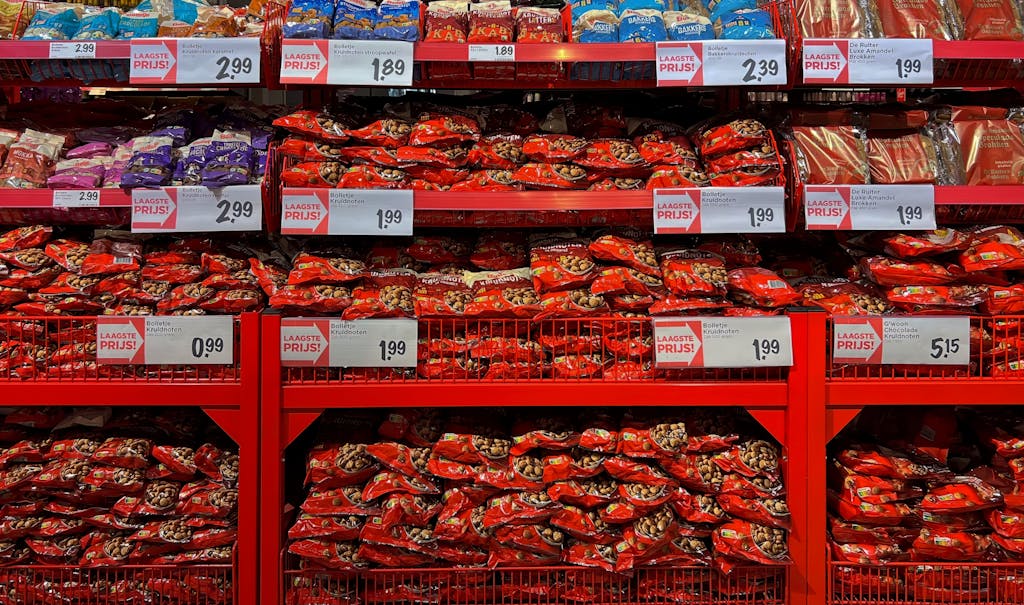FREE SHIPPING OVER $50
No More Candy or Soda? These States Want to Rewrite the Food Stamps Rulebook
In a move that’s sparking national conversation, four U.S. states are proposing changes to how food stamp benefits—officially known as SNAP (Supplemental Nutrition Assistance Program)—can be used. Their goal? To restrict the purchase of certain foods, particularly candy and soda, using government-issued benefits.
Here’s what you need to know about the potential shift, what’s motivating it, and what it could mean for millions of Americans who rely on the program.

What Is SNAP?
SNAP is a federal program that provides food-purchasing assistance to low-income individuals and families. It’s administered by the U.S. Department of Agriculture (USDA), but states have some flexibility in how they run their programs.
Participants receive an electronic benefits card (EBT), which can be used like a debit card at most grocery stores, convenience stores, and even some farmers markets.
Which States Are Proposing Changes?
So far, Arkansas, Idaho, Indiana, and West Virginia have introduced or backed proposals to ban or limit the use of SNAP funds for sugary drinks and junk food like candy. These proposals are still in various stages of the legislative process and have not yet become law.
In most cases, the bills or legislative requests ask the USDA for a waiver—since current federal guidelines do not allow states to create their own list of approved or banned foods.
Why Target Soda and Candy?
Supporters of these changes cite public health as the primary concern. According to the Centers for Disease Control and Prevention (CDC), high consumption of sugary drinks is linked to obesity, type 2 diabetes, and heart disease—conditions that disproportionately affect low-income communities.
Lawmakers pushing for reform argue that taxpayer dollars should not be spent on non-nutritious food and beverages that may contribute to these chronic health issues.
Some supporters also point to studies suggesting that SNAP recipients, on average, purchase more sugar-sweetened beverages than non-participants, though findings vary.
What Are the Arguments Against the Change?
Critics of the proposed restrictions argue that they could increase stigma against SNAP users and make grocery shopping more difficult. There’s also concern about how such a rule would be implemented—determining which foods are “junk” can be subjective, and retailers would need to update point-of-sale systems to comply.
Nutrition experts also emphasize that restricting food choices doesn’t automatically lead to better diets. Many recommend increasing access to fresh food, nutrition education, and cooking programs instead.
Additionally, the USDA has previously rejected similar proposals, stating that implementation would be complex and burdensome for both stores and beneficiaries.
What Does the USDA Say?
The USDA has historically maintained that SNAP is designed to help families afford food, not to police dietary choices. That said, the agency has supported various nutrition initiatives over the years, including financial incentives for purchasing fruits and vegetables through programs like Double Up Food Bucks.
As of now, the USDA has not approved any statewide bans on specific food categories like soda or candy. Any change would likely require federal approval.
What Happens Next?
For any of these state proposals to take effect, a waiver request would have to be approved by the USDA, which has previously declined similar efforts.
Still, the proposals are bringing renewed attention to the role of nutrition in public assistance programs—and the ongoing debate about how much control government should have over food choices funded by taxpayer dollars.
Final Thoughts
While the future of these proposals remains uncertain, they highlight a growing national conversation around nutrition, food policy, and how best to support health in underserved communities. Whether or not these laws move forward, they’ve opened the door to important discussions about the balance between personal freedom, public health, and government responsibility.
Related Articles
- How to Eat More Protein Without Wrecking Your Gut or Missing Other Nutrients
- Want Better Gut Health and More Protein? A Doctor Reveals the Surprisingly Simple Way to Get Both
- Protein vs. Strength Training: What Really Builds Muscle After 50, According to Science
- Stop Wasting Your Cash: A Pharmacist Says These 5 Supplements Do Nothing for Your Health







